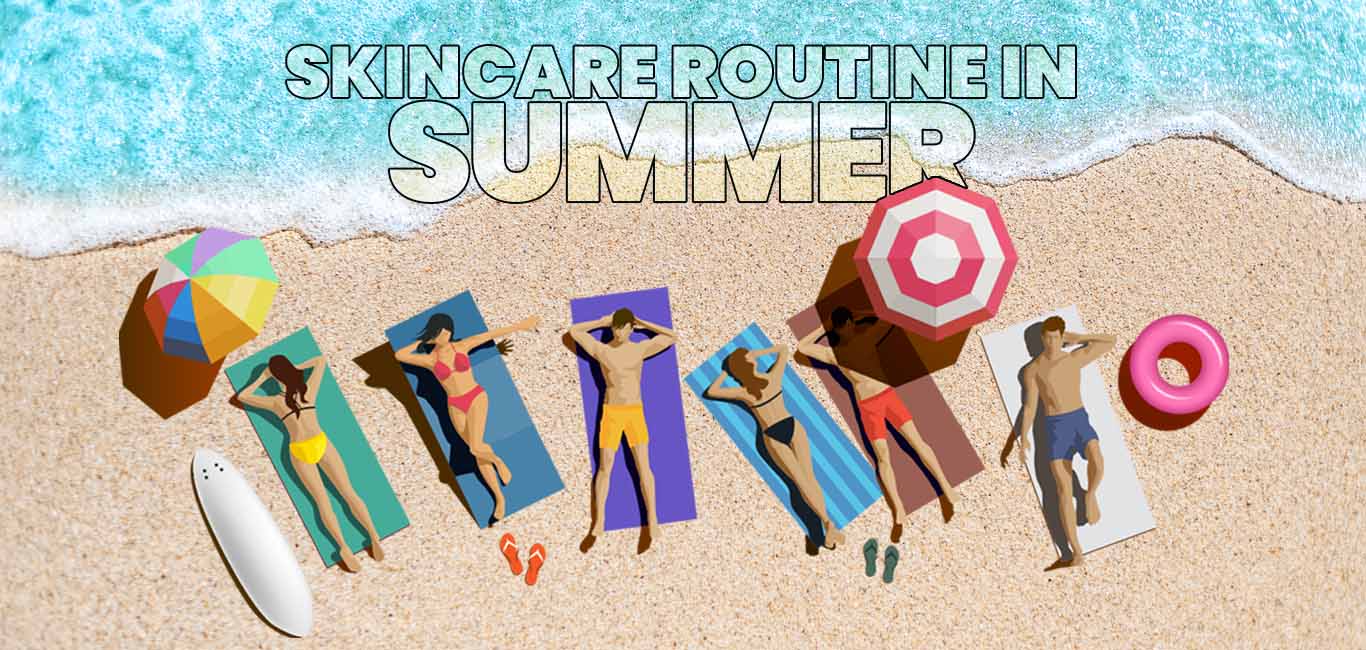
Knock knock!
Who’s there?
Summer.
Summer who?
Summer days are here again!
The scorching sun will not miss a chance to wear you out by affecting the skin and body. Yet, one can stave off the effects of harsh summer by following a few practical steps.
Experts recommend these dos and don’ts to help your skin sail through this summer.
1. Facewash: While it is the first step on the ladder of skin hygiene, it is important to choose the right formula. Cleansing removes dirt, oil, sweat layer, and makeup and provides a clean environment for other agents to penetrate the skin.
But make sure not to use regular bathing soap on your face, as it has alkaline and harsh chemicals that are unsuitable for facial skin.
Dr Nidhi Rohatgi, senior dermatology consultant at Fortis Hospital, New Delhi, says one can use toners such as cold rose water to prepare the skin for the absorption of other skincare products.
Dr Seema Oberoi Lall, consultant dermatology, C K Birla Hospital, Gurugram recommends washing the face twice a day with a hydrating and soap-free facewash instead of creamy face wash. “It may be necessary to change one’s facewash in summer to maintain a proper skincare routine. But it’s crucial to select a product that doesn’t dehydrate the skin and preserves its moisture,” she says.
2. Exfoliate: The skin sheds dead cells every two or three weeks. Incomplete shedding can lead to dryness, flakiness, clogged pores, skin issues, and acne. Exfoliation eliminates dead skin cells on the skin’s surface. One can choose physical exfoliation with granular products, or mechanical exfoliation with scrubbers or loofahs while taking a shower.
Chemical exfoliators can also be used after consulting a doctor as they dissolve dead cells.
“Exfoliation once a week removes dead skin and improves the skin’s appearance, making it breathe, [look] smoother, brighter and more youthful,” claims Dr Rohatgi. “Though exfoliation has great effects on the skin, [incorrect practices such as] not doing it properly, exfoliating daily or forcibly can make the skin red and prone to skin issues.”
3. Moisturise: Despite the summer sweat, it is crucial to apply moisturiser, say experts. “Lightweight water or gel-based moisturisers are preferable to heavy, oil-based ones during the summer because the latter can make the skin feel greasier and possibly lead to breakouts,” says Dr Lall from Gurugram.
4. Sunscreen: Prolonged exposure to harsh sun rays can lead to dull skin, hyperpigmentation, tanning, and also increase the risk of skin cancer due to ultraviolet rays. “To mitigate these risks, it is important to use a sunscreen with a minimum SPF or sun protection factor of 30 and to reapply it frequently,” says Dr Lall who advises using water-based, gel-based, non-comedogenic sunscreens on all exposed skin, whether inside or outside.
Read here to know why you need to apply sunscreen even indoors.
Read here to know how to choose the right sunscreen formula based on your skin type.
Also, Dr Rohatgi cautions against using perfumes on areas exposed to sun as they can make the skin sensitive, irritated and red.
5. Hydrate: Summer and sweating go hand in hand. It is crucial to be hydrated as sweating in summer leads to dehydration of the body and skin.
Sip a few extra glasses of water if you have sweated a lot on a certain day. Dr Lall says hydration reduces or delays the emergence of fine lines, wrinkles, and other signs of ageing while improving skin elasticity and plumpness.
“If you still feel dry after being in air conditioning or out in the sun, apply a gentle moisturiser,” says Dr Rohatgi.
Studies have also found a positive effect of hydration on the skin. According to the 2018 study published in Wiley, adequate drinking of water increases deep skin hydration. The study also showed a reduction in signs of dryness and roughness, and an increase in skin elasticity.
6. Sun protective clothing: Direct sun exposure can leave one’s skin tanned and dull while increasing the risk of skin cancer. It is important to fully cover the exposed area before stepping out into sun.
“Wear a hat or a cap when you walk or play in bright sun, or use an umbrella,” advises Dr Rohatgi. “Cover your sleeves because the tan or pigmentation could worsen. Some people can get heat rashes, heat strokes and sun-based allergies.”
7. Vitamin-C: Vitamin C functions as a potent antioxidant and boosts the skin’s own collagen production. Vitamin C also enhances the efficiency of sunscreen in neutralising the damage from exposure to sun.
Collagen is responsible for a tight and wrinkle-free smooth skin. Dr Lall recommends applying a vitamin C serum before using a sunscreen.
Dr Rohatgi also recommends consuming fruits and vegetables rich in vitamin C. They not only provide a lot of antioxidants, but they also have heat-fighting properties and can avert heat strokes and heat rashes (malaria rubra or prickly heat).
8. General and pool-time hygiene: Dr Rohatgi also cautions individuals, particularly children, on using swimming pools. “Tanning and sunburn are common in peak sunlight when one is underwater. It is recommended to swim early morning or late evening,” says Dr Rohatgi.
“Also be careful about the chlorine in the pool water; it makes the skin sensitive. Always take a bath after a swimming session and don’t forget to moisturise the skin,” she adds.
She advises that people should wear loose cotton clothes and keep the skin folds and groins clean and dry specially after a long travel; this is to prevent infections due to sweating, which is common in hot seasons.
“In case of itching, rashes or circular patches one should consult a doctor and also refrain from applying any [unprescribed] ointments or steroidal creams,” she stresses.

















